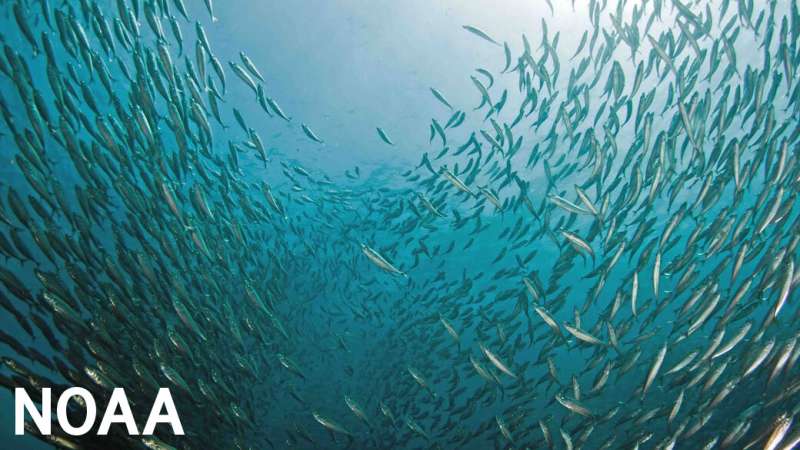New US strategy for combating illegal, unreported and unregulated fishing

Illegal, unreported, and unregulated fishing is one of the greatest threats to ocean health and a significant cause of overfishing. It contributes to the collapse or decline of fisheries that are critical to the economic growth, food systems, and ecosystems of numerous countries around the world. It is also a global problem that disadvantages law-abiding fishers and seafood producers.
The U.S. Maritime Security and Fisheries Enforcement Act called for stronger federal collaboration to coordinate efforts to address this and other maritime related threats. Today, the Congressionally established U.S. Interagency Working Group on IUU Fishing, composed of 21 member agencies, released its wide-reaching National Five-Year Strategy for Combating Illegal, Unreported, and Unregulated Fishing.
U.S. agencies are leaders in building an expanding toolbox for partners to combat IUU fishing, bringing world-wide recognition to the issue through international channels, and making progress through major domestic initiatives. The Working Group reflects the need for a whole-of-government approach to address this insidious problem. The strategy is a result of years-long domestic and international collaboration and private sector and industry engagement. It not only makes tangible and targeted progress towards combating IUU fishing globally, it also realizes a shared vision for sustainable stewardship of marine resources.
The strategy details U.S. priorities and plans over the next five years to combat IUU fishing and promote maritime security. It includes measures to increase governmental and regional capacity to implement and enforce domestic regulations and international rules and norms to mitigate the effects of IUU fishing. These U.S. actions amplify the global collective action necessary to address this problem.
Over the next five years, the Working Group will engage with five priority flag states and administrations: Ecuador, Panama, Senegal, Taiwan, and Vietnam. We will focus our efforts in helping foreign partners in their ongoing efforts to combat IUU fishing and related threats. These flag states and administrations were selected in large part due to their demonstrated willingness and interest to take effective action against IUU fishing activities associated with their vessels.
They are also located within priority regions the Working Group identified as being at a high risk for IUU fishing activity, having no mechanism to prevent the entry of illegally caught seafood into the regional markets, and lacking the capacity to fully address such illegal activity. U.S. activities will be tailored to the specific needs of each region, flag state, or administration, and U.S. projects and activities already underway.
The strategy calls for agencies to leverage existing tools and innovate new technologies to improve global governance, conservation, and management measures. Our focus on public-private partnerships is especially promising and recognizes the important role industry must play for change to endure. The emphasis on partnerships within the United States, between foreign governments, and with non-government organizations and industry will increase the effectiveness of ongoing efforts. It will help foster better communication and coordination on a global scale.
The efforts of the Working Group align closely with the President's National Security Memorandum on Combating Illegal, Unreported, and Unregulated Fishing and Associated Labor Abuses.
NOAA, U.S. Department of State, and the U.S. Coast Guard, in coordination with other Working Group agencies, will oversee the implementation of the strategy and track progress in priority regions and with the priority flag states and administrations. Together with other governments and authorities, seafood industry, academia, philanthropies, and nongovernmental stakeholders, the strategy will combat and deter IUU fishing and related threats.
The United States is committed to strengthening enforcement measures, advancing public-private partnerships, and making measurable progress in creating an environment where IUU fishing fleets and their owners no longer benefit from these illicit practices.
Provided by NOAA Headquarters

















